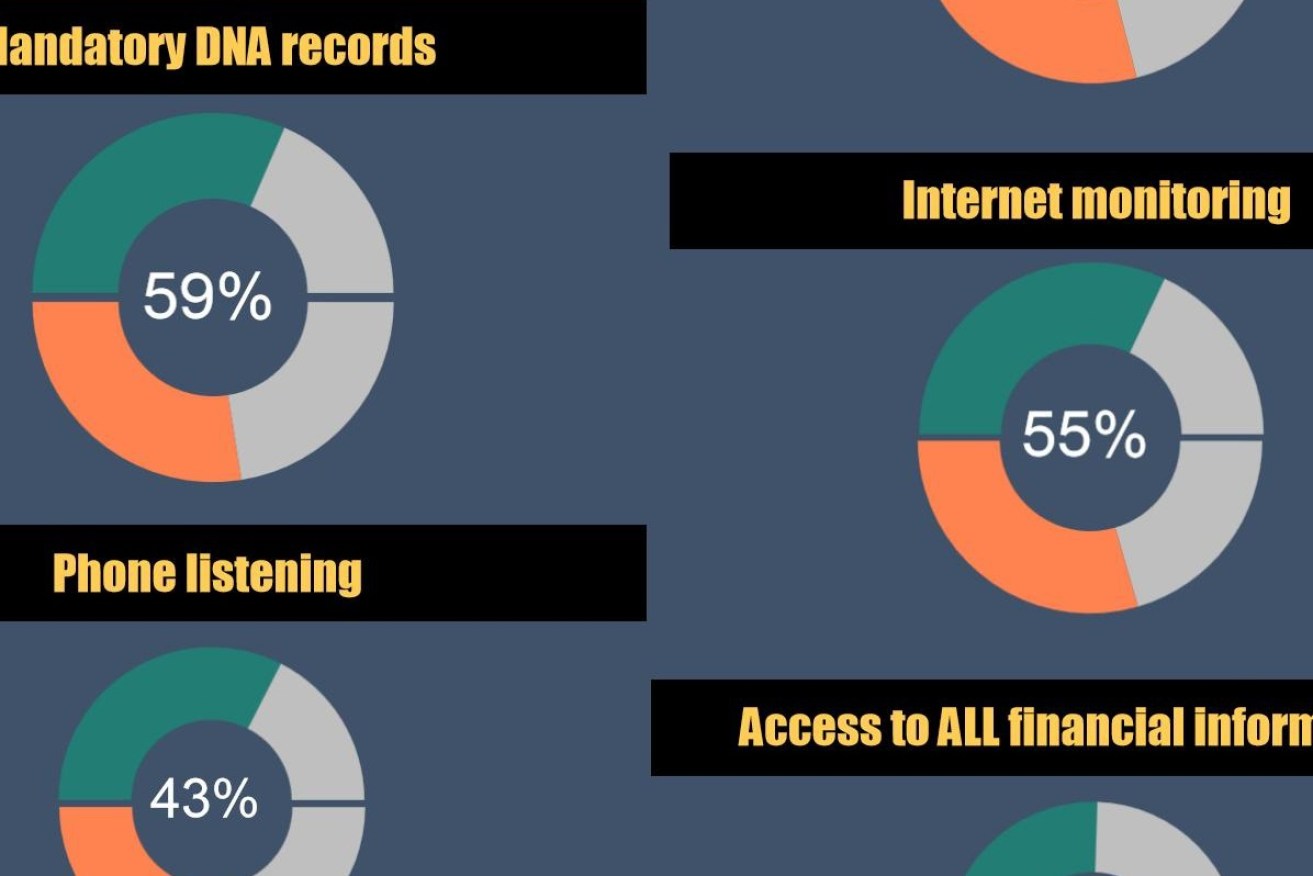Australians willing to sacrifice privacy for security


Part of a UniSA infographic detailing the results.
Australians are willing to sacrifice the privacy of their internet activities, parts of their bodies and their movements if it means better security, a University of South Australia study has found.
UniSA’s Institute of Choice conducted two surveys of Australians’ attitudes towards security and privacy, immediately after two security incidents in Australia last year.
Around 600 people were surveyed following last year’s synchronised anti-terrorism police raids. A similar number were surveyed following Sydney’s Lindt Cafe siege.
Security measures ranked more than 50 per cent ‘acceptable’ in the surveys included internet monitoring, mandatory DNA record-keeping, facial recognition technology, biometric scanning at airports, national ID cards, access to all travel information, bomb detection for vehicles in parking areas and x-ray scanning at major events and transport terminals.
“It seems Australians are fairly ready to trade off quite strong incursions into their personal privacy if they believe these will be effective in making their world safer,” said researcher Dr Simon Fifer.
“As Australians, we like to think of ourselves as naturally a bit rebellious towards authority but our research is really not supporting that stereotype.”
Security measures deemed acceptable by less than 50 per cent of respondents included allowing authorities to listen to telephone conversations and allowing access to all financial infomation.
“We found very high acceptance levels of some measures including giving free access to all personal travel information (76 per cent),” said Fifer.
“The second wave (of surveys), undertaken just after Sydney siege at the Lindt café in December 2014, showed that Australians were willing to accept bomb detection procedures for public vehicle parking, biometric scanning at all airports and x-ray scanners at all public events.
“Interestingly, the notion of a mandatory national ID card – something Australians have historically rejected several times – now has a 77 per cent acceptability rating.”
“What the results suggest is that when people have elevated fear of terrorism, they are much more ready to agree to restrictions and regulations, that at other times might have been considered heavy handed or draconian.”
Fifer said that Australians were not always completely rational about the threat of terrorism, given the small number of Australians who have been killed in terrorist events, relative to other causes of death, over the past several decades.
“People are slightly irrational, but the fear still exists,” he said.
“The media reporting on terrorism … whether at home or overseas: we’re bombarded with this.
“If you were to put it in perspective, you might get people to be more rational about it, but because they’re just absorbing all this information … it just translates into a bigger issue.”
The Institute plans to conduct further studies on Australians’ attitudes towards security, especially at a time in future where terrorism is less prominent in the media.
“It doesn’t really give you the complete picture, this is only really the start of the study,” Fifer said.
“We want to look at it over time and see where it moves to.”
Last year’s surveys asked the opinions of Australians from all states and territories, and across urban and regional communities.
The samples included a fairly even distribution of people across ages and gender, though there were slightly more male respondents.





